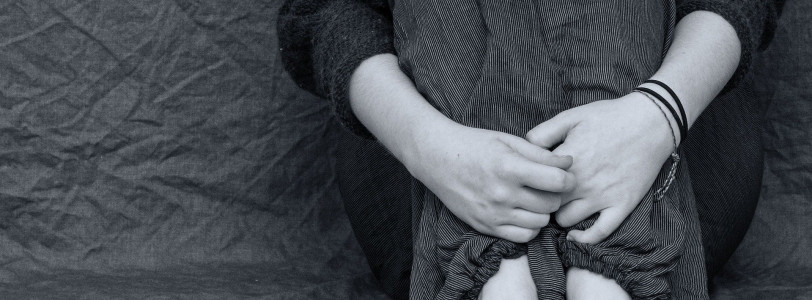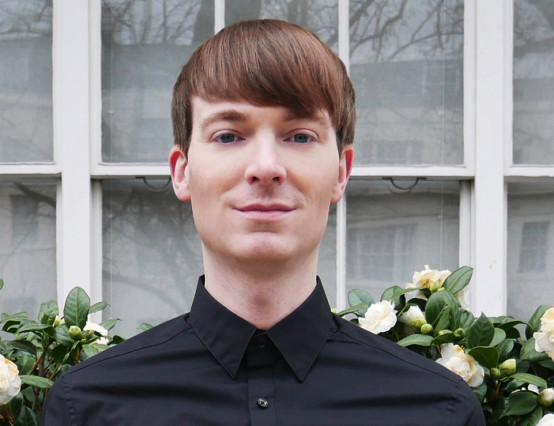When we think of bullying, it’s hard not to think of kids in a playground, picking on each other because of their differences. The harsh truth is that bullying is a terrible action that affects thousands of people in the UK, can cause a person long-lasting damage, comes in many different forms, and can occur in different environments.
Bullying is defined as:
‘[…] repeated behaviour which is intended to hurt someone either emotionally or physically, and is often aimed at certain people because of their race, religion, gender or sexual orientation or any other aspect such as appearance or disability. […] Indirect bullying; this could be leaving someone out of a group deliberately, undermining someone consistently, going against an individual etc.’ (Bullying UK)
The different forms of bullying are;
Physical bullying
‘Physical bullying is the name given to any act where the perpetrator uses their physicality to try to hurt or irritate the victim. Physical acts can range from seemingly minor actions, such as flicking items at someone repeatedly, up to actions which put the victim’s life at risk. It is worth noting that minor physical actions can still have a severe effect on the mental health of the person who is being targeted.’ (dontstickit.org)
Verbal bullying
‘Verbal bullying is a type of bullying where the perpetrator relies mainly on words to try to hurt their victim. Verbal bullying can have a severe effect on the mental health of victims, and may actually have more of a lasting effect than physical bullying. Verbal bullying serves to lower self-esteem and undermine the confidence of the victim.’ (dontstickit.org)
Indirect bullying
‘Indirect bullying can consist of: ignoring someone, leaving them out or not allowing them to join in a game, spreading rumours, talking about you behind your back and saying things that are not true ‘the bad eyes’, someone glaring or giving you threatening looks. This is very difficult to prove but can be just as distressing.’ (BullyBusters)
Cyberbullying
‘Cyberbullying is a relatively new form of bullying which is carried out using modern forms of communication, such as the internet or mobile phones. These types of technology make it much harder for victims to get away from their tormentors. Victims may feel like they cannot stop using social media or their mobile phone because these things are now considered to be very important forms of communication. It allows greater anonymity for the perpetrators. It is possible for cyberbullies to target people who are thousands of miles away and who they may never have met in real life.’ (dontstickit.org)
Sexual bullying
‘Sexual bullying consists of repeated, harmful, and humiliating actions that target a person sexually. Examples include sexual name-calling, crude comments, vulgar gestures, uninvited touching, sexual propositioning, and pornographic materials. A bully might make a crude comment about a peer’s appearance, attractiveness, sexual development, or sexual activity. Girls are often the targets of sexual bullying both by boys and by other girls. Boys might touch them inappropriately, make crude comments about their bodies, or proposition them. Girls might call other girls names like “slut” or “tramp,” make insulting comments about their appearance or body and engage in slut-shaming.’ (verywell)
Prejudicial bullying
‘Prejudicial bullying is based on prejudices against people of different races, religions, or sexual orientation. This type of bullying can encompass all the other types of bullying. When prejudicial bullying occurs, people are targeting others who are different from them and singling them out. Oftentimes, this type of bullying is severe and can open the door to hate crimes. Any time a person is bullied for his sexual orientation, race, or religion, it should be reported.’ (verywell)
What policies exist?
The law
‘Some forms of bullying are illegal and should be reported to the police. These include: violence or assault, theft, repeated harassment or intimidation, for example, name-calling, threats and abusive phone calls, emails or text messages or hate crimes. Call 999 if you or someone else is in immediate danger.’ (gov.uk)
Schools and the law
‘By law, all state (not private) schools must have a behaviour policy in place that includes measures to prevent all forms of bullying among pupils. This policy is decided by the school. All teachers, pupils and parents must be told what it is.’ (gov.uk)
Employers and the law
‘Bullying and harassment is behaviour that makes someone feel intimidated or offended. Harassment is unlawful under the Equality Act 2010.Employees should see if they can sort out the problem informally first. If they cannot, they should talk to their, manager, human resources (HR) department, trade union representative.
If this does not work, they can make a formal complaint using their employer’s grievance procedure. If this does not work and they’re still being harassed, they can take legal action at an employment tribunal. They could also call the ACAS (Advisory, Conciliation and Arbitration Service) helpline for advice.’ (gov.uk)
Anti-discrimination law
‘Schools must also follow anti-discrimination law. This means staff must act to prevent discrimination, harassment and victimisation within the school. This applies to all schools in England and Wales, and most schools in Scotland. Northern Ireland has a different anti-discrimination law.’ (gov.uk)
Do these policies work?
The problem with the policies on bullying is that they are very generic. Many different environments, such as private schools and workplaces, are allowed to make their own policies on bullying and handle it eternally, but who is policing that? Who is there to make sure that these policies are being upheld? The law also does not take into account cyberbullying. Although there are a number ofacts that can be applied to cyberbullying cases, it is a big enough issue on its own, to warrant a specific law that provides consequences to offenders of this form of bullying. The vagueness of these laws could potentially be attributed to why many people being bullied don’t come forward.
The long-lasting effects of Bullying?
‘Bullying can be extremely debilitating for those individuals who are going through it; there can be short- and long-term effects that can lead to mental health disorders. Most important to remember that bullying is a barrier to learning, can seriously affect a victim’s mental health and can change the way they feel about themselves well into their adulthood. Research shows that the long-term impact of bullying on a victim greatly increases if the bullying continues over a long period of time.’ (Anti-Bullying Alliance) For more on the effect of bullying, clickhere.
Shared stories
“I was bullied both verbally and physically throughout school. These incidents occurred over several years, by various people and groups. I was called “ugly”, racist names, had things thrown at me and was physically assaulted more than once. It was relentless and caused me to become depressed and even have suicidal thoughts. Even though it has been years since this happened, and I am now 30 and living a good life, I still have an issue with confidence, am socially anxious, and I tend not to want to speak to others, even though it is unavoidable. One other thing that has happened is that when the bullying did eventually stop, I then internalised everything that I was told and started to become my own bully, as I was too used to hearing all those terrible names. Looking back, I now realise that the people who used to bully me had their own issues and took it out on me, and I may not be able to forgive that, but I can understand. However, I do want to stress the importance of speaking up and standing up for yourself: don’t let anyone mistreat you as you deserve to be treated with respect.” - Georgina, H. 30, Social Worker.
“I went to boarding school at the age of 14, after spending time in the Middle East for my father’s job. Returning to Malaysia after travelling was hard, as I was no longer fluent in the language, and this made me a target. As a bigger girl, boys would challenge each other and see if they could push me over and hit me. My mother taught me to be strong so that I would hit them back, but this only made things worse. If you can’t stick up for yourself and no one will help you, what are you supposed to do? One boy used to chase down the corridor every time he saw me; it was endless because not only were they my school peers but my roommates as well. On the first day, a girl I didn’t know started a rumour about me so that she could have friends and I would have none. It was an awful time, and the only way I could deal with it was keeping my head down, try and make other friends, and to leave at the first chance I had. I did eventually tell a teacher, I showed her the bruises on my arms, and it did help but only because they were afraid of getting in trouble, and not because they were sorry at all. I’m lucky in a way because their reasons for bullying me were so shallow, it doesn’t keep me up at night anymore, but it’s a time that, if I could go back to, I would have told someone sooner.” - Farah A, 25. Graphic Designer.
“In my final year of high school, someone spread a lie about me, and no matter how many times I told my friends I didn’t do it, they wouldn’t believe me. I spent most of year 11 by myself, feeling isolated and alone. I tried to hang around with other people and forget about it, but they still made my time at school really uncomfortable. Talking about me, staring at me, it was unpleasant, and it went on for months. I can say, however, that it made me realise what friendship actually is. I was a loyal friend who they found it easy to discard and treat me like crap. Without that experience, I wouldn’t have known what friendship is actually about, and I feel I would have continued to allow people to disrespect me.” – Anastacia D, 25. Project Coordinator.
Who is there to help?
Many organisations work all year round, championing the fight against bullying, and some of them have been linked below:
ACAS(Advisory, Conciliation and Arbitration Service)









0 Comments